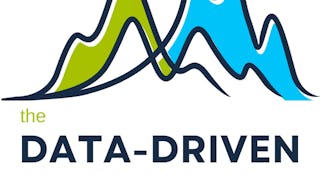- Browse
- Linear Algebra
Results for "linear algebra"
 Status: Free TrialFree TrialG
Status: Free TrialFree TrialGGoogle
Skills you'll gain: User Experience Design, Responsive Web Design, Storyboarding, Adobe XD, Information Architecture, User Experience, UI/UX Research, Web Design, Usability Testing, Cross Platform Development, Figma (Design Software), User Interface and User Experience (UI/UX) Design, User Centered Design, Prototyping, Wireframing, User Research, User Story, Presentations, Human Factors, Persona (User Experience)
4.4·Rating, 4.4 out of 5 stars58 reviewsBeginner · Professional Certificate · 3 - 6 Months
 Status: Free TrialFree TrialU
Status: Free TrialFree TrialUUniversity of Colorado Boulder
Skills you'll gain: Sampling (Statistics), Statistical Hypothesis Testing, Data-Driven Decision-Making, Descriptive Statistics, Correlation Analysis, Data Analysis, Probability Distribution, Statistical Software, Statistics, Statistical Analysis, Estimation, R (Software), Data Visualization, Risk Analysis, Probability, Statistical Methods, R Programming, Return On Investment, Probability & Statistics, Problem Solving
Build toward a degree
4.6·Rating, 4.6 out of 5 stars43 reviewsBeginner · Specialization · 3 - 6 Months
 Status: NewNewStatus: Free TrialFree TrialB
Status: NewNewStatus: Free TrialFree TrialBBirla Institute of Technology & Science, Pilani
Skills you'll gain: Theoretical Computer Science, Applied Mathematics, Algorithms, Cryptography, Relational Databases, Data Management
Beginner · Course · 1 - 3 Months
 Status: PreviewPreviewP
Status: PreviewPreviewPPontificia Universidad Católica de Chile
Skills you'll gain: Engineering Analysis, Engineering Calculations, Numerical Analysis, Finite Element Methods, Chemical Engineering, Simulation and Simulation Software, Differential Equations, Applied Mathematics, NumPy, Mathematical Modeling, Scientific Visualization, Python Programming, Plot (Graphics), Linear Algebra, Algorithms
Intermediate · Course · 1 - 3 Months

Skills you'll gain: Course Development, Learning Management Systems, Information Architecture, Content Management, Design
4.8·Rating, 4.8 out of 5 stars38 reviewsBeginner · Guided Project · Less Than 2 Hours
 Status: Free TrialFree TrialD
Status: Free TrialFree TrialDDassault Systèmes
Skills you'll gain: SolidWorks (CAD), Technical Design, Computer-Aided Design, 3D Modeling
Beginner · Course · 1 - 4 Weeks
 Status: Free TrialFree TrialS
Status: Free TrialFree TrialSSplunk Inc.
Skills you'll gain: Splunk, Correlation Analysis, Performance Tuning, Data Manipulation, Data Analysis, Data Modeling, Big Data, Transaction Processing, Data Science, Business Analytics, Data Visualization
4.7·Rating, 4.7 out of 5 stars46 reviewsBeginner · Course · 1 - 4 Weeks
 Status: Free TrialFree Trial
Status: Free TrialFree TrialSkills you'll gain: HVAC, Building Services Engineering, Thermal Management, Energy and Utilities, System Requirements, Control Systems, Safety Standards, Mechanical Engineering, Environmental Monitoring, System Monitoring, Sustainability Standards
4.9·Rating, 4.9 out of 5 stars12 reviewsIntermediate · Course · 1 - 4 Weeks
 Status: PreviewPreview
Status: PreviewPreviewSkills you'll gain: Multi-Cloud, Data Architecture, Data Flow Diagrams (DFDs), Multi-Tenant Cloud Environments, Dataflow, Data Management, Regulatory Compliance, Information Architecture, Data Infrastructure, AI Enablement, Data Integration, Data Strategy, Data Science, Strategic Planning
4.6·Rating, 4.6 out of 5 stars35 reviewsIntermediate · Course · 1 - 4 Weeks
 Status: Free TrialFree TrialU
Status: Free TrialFree TrialUUniversity of Colorado Boulder
Skills you'll gain: Sustainable Business, Organizational Leadership, Sustainable Design, Corporate Sustainability, Business Transformation, Performance Measurement, Waste Minimization, Business Modeling, Innovation, Product Lifecycle Management, Resource Management, Key Performance Indicators (KPIs), Packaging and Labeling, Environmental Issue, Case Studies
Build toward a degree
4.9·Rating, 4.9 out of 5 stars10 reviewsBeginner · Course · 1 - 4 Weeks
 Status: Free TrialFree Trial
Status: Free TrialFree TrialSkills you'll gain: Tensorflow, Artificial Neural Networks, Deep Learning, Keras (Neural Network Library), Recurrent Neural Networks (RNNs), Classification Algorithms, Image Analysis, Convolutional Neural Networks, Supervised Learning, Machine Learning Algorithms, Machine Learning, Model Evaluation, NumPy, Regression Analysis
Intermediate · Course · 1 - 3 Months
 Status: Free TrialFree TrialL
Status: Free TrialFree TrialLLearnQuest
Skills you'll gain: Time Series Analysis and Forecasting, Trend Analysis, Data Visualization, Customer Demand Planning, Regression Analysis, Matplotlib, Forecasting, Predictive Modeling, Correlation Analysis, Supply Chain Management, Data Analysis, Pandas (Python Package), Statistical Modeling, Machine Learning, Python Programming
3.3·Rating, 3.3 out of 5 stars39 reviewsIntermediate · Course · 1 - 4 Weeks
Searches related to linear algebra
In summary, here are 10 of our most popular linear algebra courses
- Google UX Design (DE): Google
- The Data Driven Manager: University of Colorado Boulder
- Discrete Mathematics for Computer Science and Engineering: Birla Institute of Technology & Science, Pilani
- Transferencia de momentum, calor y masa computacional: Pontificia Universidad Católica de Chile
- Understand Best Practices with Canvas: Coursera
- xDesign Feature Patterns and Sweeps: Dassault Systèmes
- Splunk Search Expert 103: Splunk Inc.
- Cutting-edge Technology in Air Conditioning System: L&T EduTech
- IBM Data Topology: IBM
- The Circular Economy: University of Colorado Boulder










